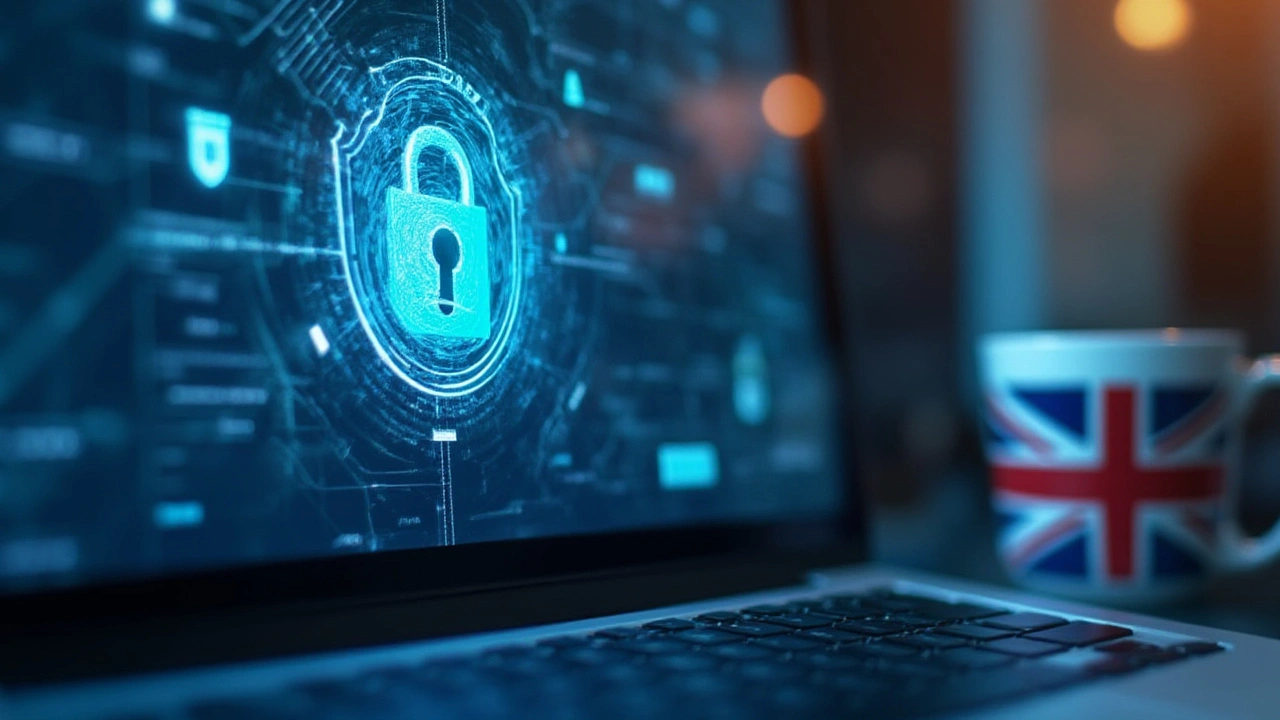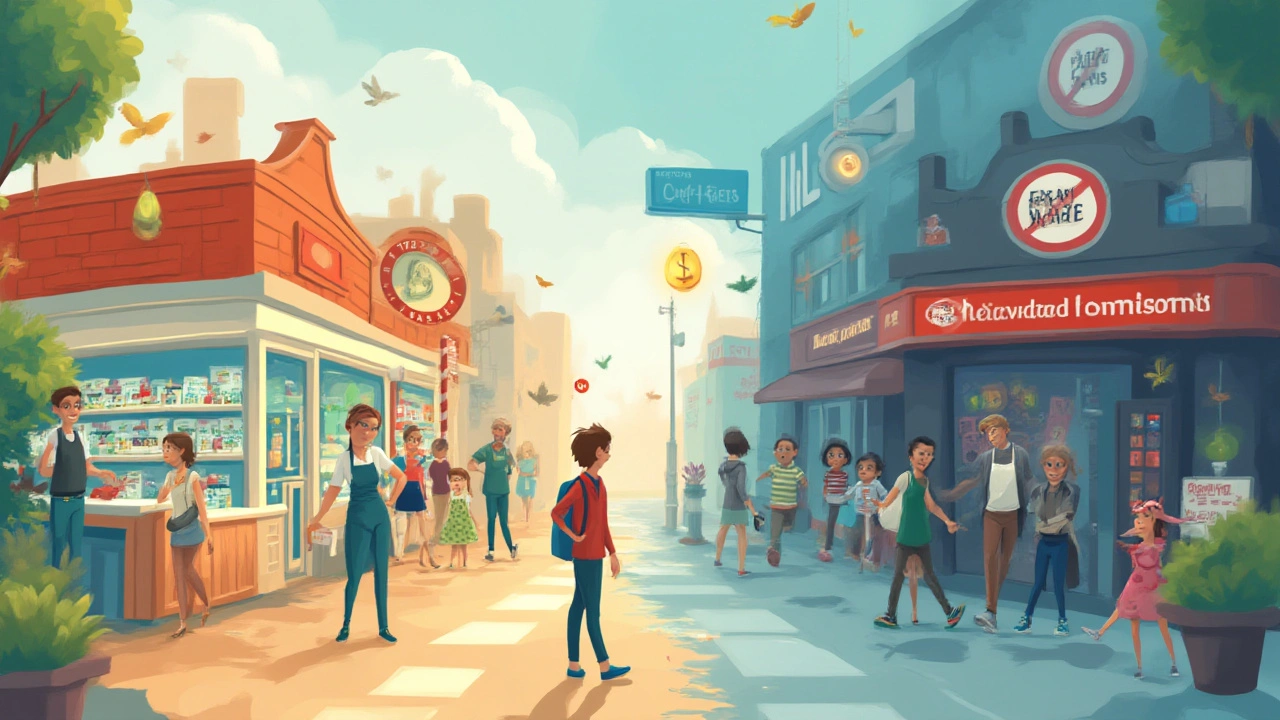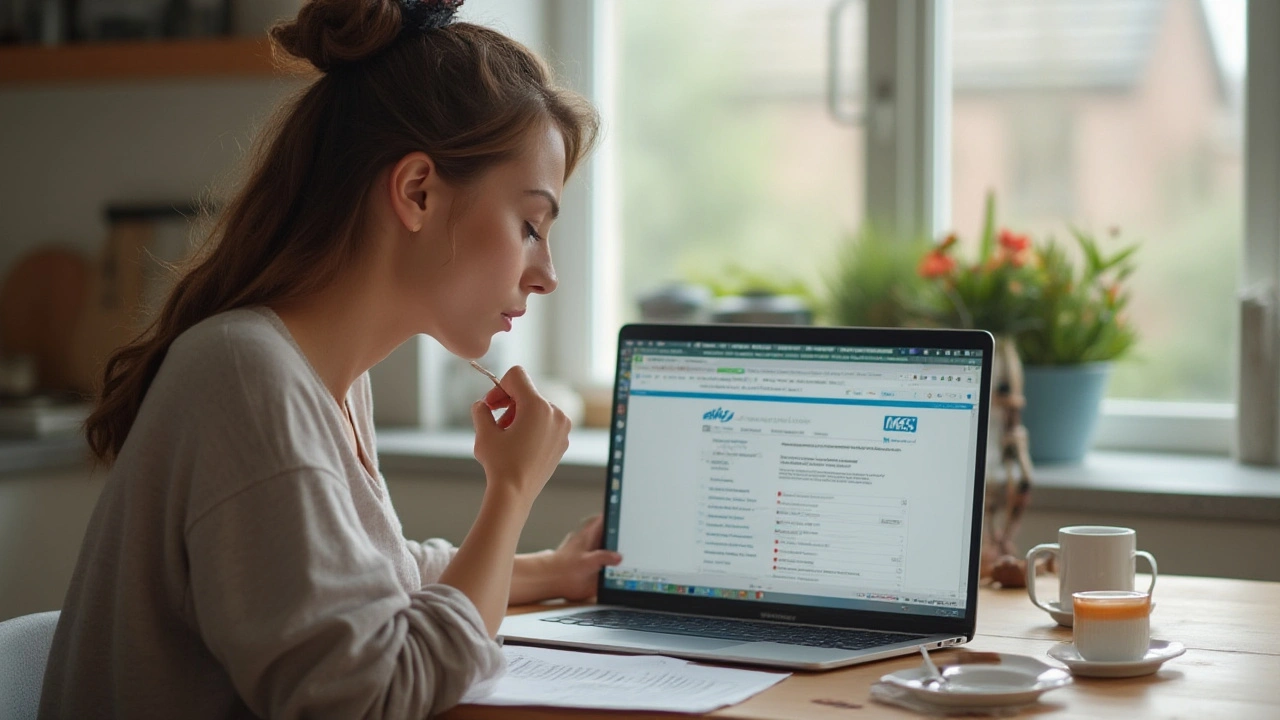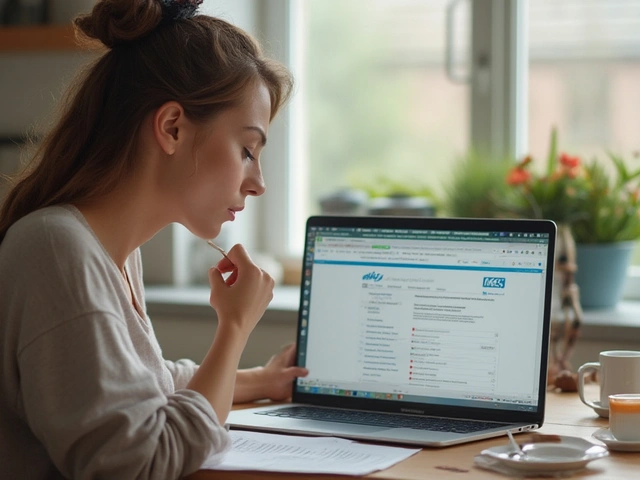Imagine getting your prescribed meds delivered right to your door, no pharmacy lines, no waiting. Super convenient, but there’s a catch: the internet’s full of sketchy operators ready to cash in on your trust. It’s no joke—thousands of fake pharmacies are just a Google search away, and some look more professional than your local chain store.
People want low prices, privacy, and convenience. But with stories of fake (sometimes dangerous) meds, data leaks, and payment scams, can you actually play it safe? It turns out, yes—if you know what to look for. Grab this checklist before you fill in any payment details, and let’s talk about how to spot the good pharmacies from the ones looking to rip you off or worse.
Spotting Licensed and Legitimate Online Pharmacies
First thing’s first: if a pharmacy isn't licensed, run. Legitimate online pharmacies are tightly regulated, and for good reason. In the US, look for the VIPPS seal from the National Association of Boards of Pharmacy (NABP). This isn’t just a fancy badge—it actually means regulators have checked the site’s practices and credentials. In Canada, you want a CIPA (Canadian International Pharmacy Association) seal. Without these, those deep discounts aren’t worth the risk.
Don’t take their word for it, either. Go to the official NABP or CIPA websites and search for that online pharmacy in their directories. If it’s not there, it’s a big red flag. Some shady sites just stick counterfeit seals at the bottom of the page—you can’t be too careful.
Look out for basic requirements: is there a real, licensed pharmacist available for questions? Do they require a valid prescription from your doctor (not just an online questionnaire)? Skip any site that says you don’t need one—they’re breaking the law and gambling with your health.
Different countries have different regulators. A UK website, for example, should display MHRA or the General Pharmaceutical Council registration. Here’s a quick table to help you check certifications based on location:
| Country | Certification/Seal | Where to Verify |
|---|---|---|
| USA | VIPPS/NABP | nabp.pharmacy |
| Canada | CIPA | cipa.com |
| UK | MHRA/GPhC | mhra.gov.uk, pharmacyregulation.org |
| Australia | Pharmacy Board/APHRA | pharmacyboard.gov.au |
Real pharmacies should also clearly list a physical address and working phone number. Call if you want—a rep should answer. If it’s a PO Box or no address at all, your money (and health) are not safe.

Keeping Your Transactions and Personal Data Secure
Not all security is about licenses; some of it’s built into the website itself. Before you put in any credit card or personal info, look for “https://” in the web address and a padlock icon. This means the site encrypts your data. If the site still uses “http://”, it’s a dinosaur at best—and a hacker’s dream at worst.
Bad actors love targeting online sellers, especially pharmacies. In 2022, researchers flagged that about 95% of illegal pharmacy websites collect personal info but never secure it. That’s just inviting your data to be stolen and sold. Some may even install malware on your device. Stick with modern, encrypted sites. Use strong, unique passwords you don’t repeat anywhere else. Never share unneeded details, like your full Social Security Number.
Payment matters, too. Legit sites offer credit card or established digital payment methods (PayPal, Apple Pay). If you’re asked to pay with untraceable cash apps, wire transfers, or crypto only, hit the brakes. Those payments are nearly impossible to reverse, and scammers know it.
- Check for posted privacy policies. If there's none or it’s a generic template, that’s sketchy.
- Watch for weird pop-ups, excessive ads, or redirects.
- If a deal seems too good to be true, there’s a good chance it is. Compare prices to reputable pharmacies—extreme discounts usually mean extreme risks.

Balancing Price, Privacy, and Using Trusted Alternatives
Why do so many people roll the dice on overseas pharmacies or unfamiliar sites? The answer’s simple—some US meds cost five, ten, even fifty times as much as in other developed nations. For many, online pharmacies become their only option to afford essentials.
Still, don’t let high prices push you into the arms of a scammer. There are real, safe alternatives out there—many with lower prices than your corner drugstore. If you want a trusted starting point, check out this resource on rxconnected alternative sites with reliable reputations. The list is updated for 2025 and offers direct comparisons, so you can pick what fits your budget and safety needs.
But privacy isn’t just about hiding your prescription order from nosy neighbors—it’s also about your health data staying out of unauthorized hands. A recent study published by JAMA pointed out that over 60% of people who tried buying meds online never actually checked the pharmacy's privacy practices. Don’t be in that group. The best online pharmacies will lay out exactly how your data is stored, what’s shared, and who sees it. If that information is missing or unclear, choose another.
- Always use secure Wi-Fi when ordering online. Public networks at cafés or libraries are risky for any financial transaction.
- Set up credit card alerts so you catch any unauthorized payments right away.
- If you ever suspect you got fake meds, contact a healthcare provider and save the packaging for a potential investigation.
Here’s a wild stat: the World Health Organization estimates that 1 in 10 medical products in low- and middle-income countries is either substandard or fake, mostly sold online. That should make anyone pause. Still, if you take a few simple steps, buying prescriptions online can be safe—even easier than going in person.
- Start by making sure the pharmacy is licensed in its country and verified by a known authority.
- Don’t skip the privacy policy or secure payment process—those are your first lines of defense.
- If it seems strange, pushy, or asks for more info than your regular pharmacy, bail out gracefully.
Find those sites you can actually trust—the ones that ask for a real prescription, answer your questions, and care about your security. Staying safe online shouldn’t be rocket science, just common sense with a checklist. If you stick to it, you can get your meds conveniently without stepping out of your comfort zone—or putting your safety on the line. Pretty decent trade, right?



Jayant Paliwal
July 23, 2025 AT 21:21First, let me say that the internet has democratized access to medication, but it has also opened the floodgates for malicious actors, who masquerade as legitimate pharmacies, preying on the unwary; second, the presence of official seals such as the VIPPS or CIPA is not a mere decorative badge, it is a regulatory endorsement that should be verified on the official directories, otherwise you are gambling with your health; third, never trust a site that offers prescription medication without asking for a valid prescription, because that is a clear violation of pharmaceutical law and a red flag for counterfeit products; fourth, always check that the website URL begins with https:// and displays the padlock icon, as this indicates encrypted transmission of your personal and financial data; fifth, be skeptical of sites that request unnecessary personal details, such as your full Social Security Number, which is rarely needed for a legitimate purchase; sixth, compare the pricing against reputable brick‑and‑mortar pharmacies, because an offer that seems too good to be true usually hides substandard or fake drugs; seventh, ensure that the pharmacy provides a physical address and a working phone number, and test the line before committing to a purchase; eighth, use strong, unique passwords for any account you create, and enable two‑factor authentication wherever possible; ninth, set up credit‑card alerts so that any unauthorized charge is caught immediately; tenth, avoid payment methods that are untraceable, such as wire transfers or cryptocurrency‑only portals, because they remove any recourse once a scam occurs; eleventh, read the privacy policy, and if it is missing or appears to be a generic copy‑paste, walk away; twelfth, be aware that public Wi‑Fi networks are a breeding ground for packet sniffing, so always order from a secure home network; thirteenth, keep a copy of the medication packaging and any correspondence, as this may be useful for reporting to authorities if you suspect counterfeit; fourteenth, remember that regulatory bodies like the NABP maintain searchable databases, and a quick lookup can save you from a costly mistake; fifteenth, understand that while lower prices are attractive, the hidden cost of health complications from fake meds far outweighs any savings; and finally, practice due diligence as a habit, not a one‑time checklist, because the landscape of online pharmacies evolves constantly, and staying informed is your best defense.
Kamal ALGhafri
July 29, 2025 AT 16:15It is a moral imperative to treat personal health as a sacred trust, and consequently any shortcut that jeopardizes that trust is ethically indefensible; the allure of cheap medication must not eclipse the responsibility to verify a pharmacy's legitimacy, for the consequences ripple beyond the individual, affecting families and communities alike.
Gulam Ahmed Khan
August 4, 2025 AT 11:08Got this checklist, feeling much safer now! 😊
John and Maria Cristina Varano
August 10, 2025 AT 06:01These checklists are overhyped. US pharmacies are already safe enough. No need to read all that.
Melissa Trebouhansingh
August 16, 2025 AT 00:55While the checklist enumerates numerous safeguards, one must also consider the epistemic hierarchy of medical procurement; an erudite consumer discerns not merely the visible seals but also the ontological provenance of the active pharmaceutical ingredients, thereby transcending superficial compliance.
Brian Rice
August 21, 2025 AT 19:48It is disconcerting that so many individuals flout basic cybersecurity principles when ordering medication, thereby endangering not only themselves but also the integrity of the broader healthcare ecosystem; the prevalence of unencrypted connections reflects a profound negligence that cannot be excused under the guise of convenience; furthermore, the reliance on opaque payment channels undermines transparency and fiduciary responsibility; such recklessness is tantamount to willful endangerment, and it is incumbent upon regulatory agencies to enforce stricter compliance measures; users must internalize the gravity of these violations, lest they become complicit in a systemic failure; only through rigorous adherence to verified protocols can the public confidence be restored.
Stan Oud
August 27, 2025 AT 14:41Sure, but the whole system is rigged anyway… why bother checking every seal?
Ryan Moodley
September 2, 2025 AT 09:35In a world where corporate greed masquerades as patient care, the very notion of a "legitimate" online pharmacy becomes a philosophical paradox; we are led to believe that certification guarantees safety, yet history teaches us that authority can be subverted; thus the checklist is both a shield and an illusion, reflecting society's futile attempt to impose order on chaos; each seal is a mirage, shimmering in the desert of consumerism; ultimately, the onus lies not on the pharmacy but on the individual's critical consciousness.
carol messum
September 8, 2025 AT 04:28It makes sense to stay skeptical and double‑check; a quick search can reveal a lot.
Jennifer Ramos
September 13, 2025 AT 23:21Great points everyone! I’ve found that keeping a spreadsheet of verified pharmacies helps me stay organized 😊. Also, sharing the checklist with friends can protect them too. Let’s keep the conversation going and help each other stay safe.
Grover Walters
September 19, 2025 AT 18:15While the spreadsheet approach is commendable, one must also acknowledge that over‑reliance on personal records may create a false sense of security, which can be detrimental if the underlying source data is compromised.
Amy Collins
September 25, 2025 AT 13:08Honestly, all that regulation talk is just corporate fluff. Just grab the meds cheap and be done.
amanda luize
October 1, 2025 AT 08:01That cavalier attitude ignores the insidious network of counterfeit distributors, whose operations are often concealed behind layers of obfuscation; the consequences are not merely financial but can be life‑threatening.
Chris Morgan
October 7, 2025 AT 02:55The market will self‑regulate; consumer demand will weed out the bad actors without bureaucratic interference.
Pallavi G
October 12, 2025 AT 21:48Actually, proactive verification empowers consumers and accelerates market accountability, turning self‑regulation into a collaborative effort rather than a passive hope.
Rafael Lopez
October 18, 2025 AT 16:41When you encounter a new pharmacy, first check the URL for https://, then look for the VIPPS or CIPA seal, next verify the seal on the official NABP or CIPA site, after that confirm the physical address and phone number, and finally test their customer service by calling the listed number before placing an order.
Craig Mascarenhas
October 24, 2025 AT 11:35All those seals are just paper, the real control is hidden.
aarsha jayan
October 30, 2025 AT 05:28Let’s remember that sharing knowledge in a friendly, inclusive way builds a stronger community, so keep the tips coming and welcome newcomers with open arms!